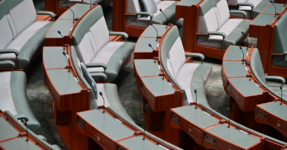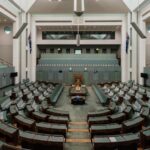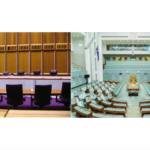New Laws Will See Federal Politicians Punished for Poor Conduct

Many of us may be feeling the fatigue in the face of the ongoing Brittany Higgins vs Bruce Lehrmann saga.
However, despite the never-ending media headlines, the creation of ‘celebrity status’ around a number of people involved, and notwithstanding the legal cases still making their way through the courts, it is important to acknowledge that Ms Higgins’ allegations of sexual assault in Parliament House in 2021 has had some positive outcomes.
Establishment of the Independent Parliamentary Standards Commission
One of these is the establishment of an Independent Parliamentary Standards Commission (IPSC). It has been some time in the making, but it will be set up in response to the Set the Standards Report, after extensive investigations conducted by the Australian Human Rights Commission and led by the Sex Discrimination Commissioner and laid bare the full extent of toxic behaviour in Australian Federal Politics and the Commonwealth Public Service.
The Set the Standard Report concluded that almost 40% of respondents in parliamentary workplaces had personally experienced bullying and 33% of people had personally experienced sexual harassment, with 1% experiencing an actual or attempted sexual assault.
This week the Federal Government has finally unveiled the legislation which will govern the IPSC. The Commission’s role will be to act as an independent workplace investigation body and sanctions framework that will enforce workplace behaviour codes for Parliamentarians, public service staff and other people who work in Commonwealth parliamentary workplaces.
These behaviour standards were signed off last year – they include general expectations for behaviour, including requirements to foster respectful and inclusive workplaces, and a prohibition on bullying, harassment, sexual harassment and sexual assault, and discrimination.
Ensuring a safe, equitable, inclusive workplace
The IPSC is due to begin its operations from October 1 this year provided the legislation passes Parliament. Under the new rules, federal politicians could have their pay docked by up to five per cent for serious breaches of workplace rules.
The government has committed $3.8 million for initial funding to establish the IPSC – not an insubstantial amount.
It has not gone unnoticed that this cost, to the taxpayers, will come despite the fact that Australia currently has some of the most comprehensive workplace laws in the world.
The Fair Work Commission already has the jurisdiction to oversee the implementation of workplace laws across the nation. And yet, one of our biggest employers, our collective of leaders and decision-makers, has, according to its own people, breached many of them, and now requires its own specially created independent watchdog to monitor Australia’s leaders and decision makers as they go about their jobs.
The inference has long been that it is the male politicians who typically demonstrate poor behaviour, but in the past several years there have been numerous scandals, with many of our high profile female politicians also accused of engaging in negative and damaging antics.
Brittany Higgins’ allegations against Bruce Lehrmann are perhaps the most serious that have made their way into the mainstream media.
However, it is not just interactions between colleagues – we have seen, time and again, poor ethics and questionable judgment on display, particularly when it comes to rorting public funds for political or even personal gain. These are not the remit of the IPSC.
Will the IPSC be effective in creating culture change?
The question remains whether the IPSC will be equipped with enough skilled people and resources to do its job effectively, and whether it will be able to remain completely ‘independent.’ Over time, lines can be blurred and contamination can occur if strict boundaries are not put in place and adhered to.
While it is crucial that employers provide safe workplaces, this is always dependent on numerous factors. The IPSC is a positive step forward, but it will most certainly be under scrutiny and one of its measures of success must surely be upholding accountability. Without this, it cannot maintain credibility.
The IPSC will be empowered to impose any penalties that it sets, including pay docking by five percent, although it should be noted that the average Federal MP salary is more than $200,000 per annum, a 5% fine based on this amount would equate to $10,000.
Further, if there are sanctions against those who are found to have behaved in a way that does not meet the behavioural standard, then there must also be sanctions for those who make false allegations too – these can be every bit as destructive to careers and livelihoods.







